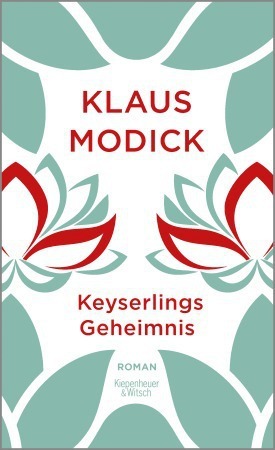Klaus Modick invites readers to discover Eduard von Keyserling at Prima Vista
On 5 May at 6 p.m., renowned German author Klaus Modick will take the stage at Tartu Public Library for an evening dedicated to his work. He will be in conversation with literary scholar Liina Lukas. As a prelude to the literary event, a themed walk will begin at 4 p.m. at the Toome Hill ruins, tracing the memories of Baltic German students in Tartu—a fitting introduction, as the protagonist of Modick’s novel Keyserling’s Secret also wandered these very streets as a university student. The novel, translated into Estonian by Anne Arold and published by Eesti Raamat, is closely tied to Estonia’s cultural history.
Klaus Modick (b. 1951, Oldenburg) is a German author and translator best known for his cultural and biographical novels. At this year’s Prima Vista festival, the spotlight is on his 2018 novel Keyserling’s Secret (Keyserlings Geheimnis), partly set in Tartu. The book tells the story of Eduard von Keyserling (1855–1918), a Baltic German writer and impressionist of German literature. Born in Courland, Keyserling studied law at the University of Dorpat (now University of Tartu) from 1875 to 1877. The long-hidden secret at the heart of Modick’s novel is closely linked to those years spent in Tartu.
Modick is also the author of Sunset (2011), about the friendship between Bertolt Brecht and Lion Feuchtwanger, and Konzert ohne Dichter (2015), which explores the complicated relationship between poet Rainer Maria Rilke and artist Heinrich Vogeler. The latter became a true bestseller, warmly received by critics and readers alike.
Alongside artist-focused novels, Modick has also written historical and family sagas. His works are often described as refined, intelligent entertainment reminiscent of Anglo-Saxon literature—layered, immersive, and rich in detail, meeting the expectations of even the most discerning literary readers.
Those familiar with Keyserling’s style will recognise its echo in Modick’s novel—an intentional homage, as the author has noted his aim was to write as Keyserling himself might have.
Modick’s book may inspire readers to explore the classics as well. Keyserling’s works available in Estonian include Õhtused majad (1989), Lained (1996), Helged päevad (1912), and Pastori armastus (1931, originally Dumala). Modick’s own essay The Void: In Search of Eduard von Keyserling appeared in the April 2020 issue of Akadeemia (translated by Anne Arold), followed by an interview with the author by Eve Pormeister in Akadeemia in August 2024.
The event will be held in German with simultaneous translation into Estonian. Books by the author will be available for purchase.
Supported by the German Cultural Institute and Eesti Raamat publishing house.
Further information:
Linda Jahilo, Coordinator of the German-language programme, Tartu International Literary Festival Prima Vista
Phone: +372 53 402168
Email: linda.jahilo@luts.ee
